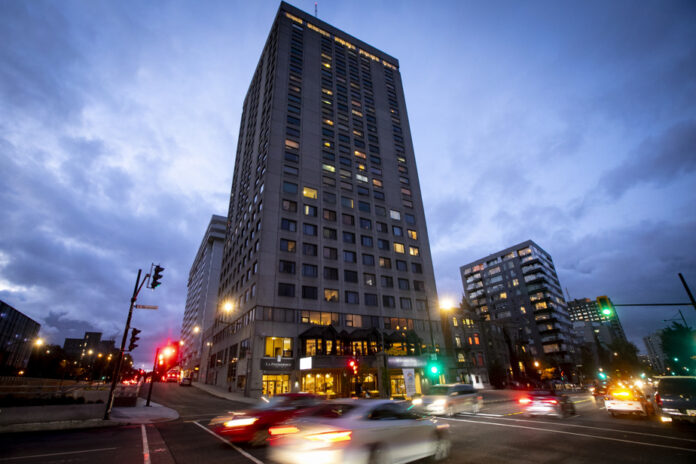The Regroupement Québécois des Résidences pour Agieux (RQRA) is asking the Court to invalidate the City of Montreal’s regulation which prohibits the change of use of residences into conventional residential buildings.
A request for judicial review was filed before the Superior Court during the summer by the RQRA. The request specifically targets the regulations adopted by around ten boroughs. The case must be heard on September 19, according to what the Regroupement says.
Essentially, the RQRA alleges that the City of Montreal does not have the power to prohibit a use when it is prescribed by the zoning by-law.
According to the RQRA, article 113 of the Law on Land Use and Urban Planning (LAU) does not give this power to municipalities and Cities only exercise the powers that the legislature in Quebec grants them.
“No provision of the LAU or the Charter [of the City of Montreal] grants the jurisdiction to the defendant or its boroughs to prohibit the conversion of an authorized use into another authorized use in the same zone,” we read in the request, drafted by the firm Municonseil lawyers.
The organization adds that articles 155 and 169 of Appendix C of the City Charter do not give this power to Montreal boroughs.
Consequently, the representative of private seniors’ residences (RPA) asks the Court to “declare that the regulations in force adopted by the various boroughs of the defendant aimed at prohibiting the conversion of a seniors’ residence into another use permitted in the same area are ultra vires” and declare them void.
The RQRA’s approach follows the adoption by the City of Montreal of a regulation in the fall of 2022 prohibiting the conversion of private residences for the elderly (RPA) to another use.
Due to lack of profitability, RPAs, especially those with fewer than 100 beds, are closing their doors in large numbers.
From April 1, 2022 to March 31, 2023, 121 RPAs closed in Quebec, according to the Ministry of Health. Since April 1, 2023, across Quebec, there have been 27 RPA closures for a total of 963 places. Certainly, new ones are opening, but overall, Quebec has lost 400 places in five months, including nearly 150 in Montreal.
In total, there are 136,804 RPA places in Quebec, down 0.7% in one year. The cohort of Quebecers aged 75 and over is growing by 4% per year.
The phenomenon of residences with fragile profitability closing has been a reality for years. La Presse reported on the phenomenon in 2019.
Last fall, the RQRA hoped that the Ministry of Municipal Affairs, responsible for the LAU, would make the city of Mayor Valérie Plante listen to reason on the illegal nature of its by-law. Which did not happen, hence the appeal.
For its part, Montreal says it is in its rightful place. “We’re just giving a building a use. When we fall into the zoning aspect, the City is absolutely within its jurisdiction,” explained Robert Beaudry, city councilor for the Saint-Jacques district, in the city center, and member of the executive committee at the time.
He had underlined the flexibility of the regulation which provides for exceptions when the owner wishes to build social housing, for example, instead of an RPA.
According to the elected official, the regulation essentially takes the form of the regulation prohibiting the conversion of rooming houses to another use which had previously been adopted without arousing opposition.















